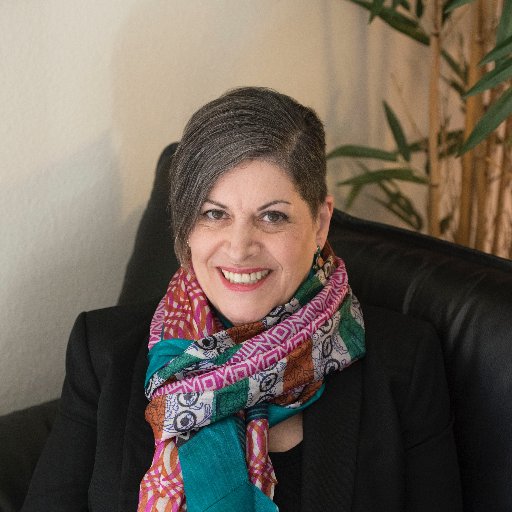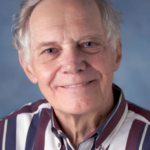Interview to Stephanie Buehler, sexologist
by Giuliana Proietti
GP How did you become interested in the field of sexology?
SB Many things lead me to the field. I grew up during the so-called “sexual revolution” in Los Angeles and was exposed to many ideas about sexual identity. I didn’t learn much in graduate school, but I trained in an inpatient setting and became aware that some of the patients had drug and alcohol problems because of sexual abuse, confusion, and shame. Once I had my license to practice, I worked with an endocrinologist who suggested that I learn sex therapy. That really got my attention, and I moved forward to do just that. It is a fascinating field, and I’m never bored.
GP In Italy we don’t have the definition of “sex therapist”, but the professional who deals with human sexuality (and who practise sexual therapy) is a “clinical sexologist”. Reading articles by american authors, I sometimes find the definition “Sex Therapist” and sometimes “Clinical Sexologist”. Are they the same or there are some differences between the two?
SB My understanding is that in the States, “sex therapist” refers to someone who is licensed as a mental health professional, like a psychologist or clinical social worker. The term should probably be “sex psychotherapist,” but that’s too long for us, we like to shorten everything! Also, there is no degree leading to becoming a “clinical sexologist.” It’s a very jumbled field for us.
TERAPIE ONLINE
Costo della Terapia online, Individuale e di Coppia, 70 euro

⇒Dr. Giuliana Proietti Tel. 347 0375949
⇒Dr. Walter La Gatta Tel. 348 3314908
Telefona o Scrivi in whatsapp
GP Why, in your opinion, female sex therapists are, in general, more popular than male sex therapists? (When I look for a sex therapist in a magazine or in the social media, I only find women. Why? It seems our profession is performed only by women…)
SB In America, the entire field of psychotherapy is dominated by women, and so it follows that most sex therapists are female.
GP Why have you written your book “What Every Mental Health Professional Needs to Know about Sex”?
SB I went to a school of psychology known for its rigor–and I didn’t learn anything about the part of the DSM that referred to sexual dysfunction. This, to me, was ridiculous. When I set out to learn more, I found many of the books to be overly academic and dry, as if compensating for a real or imagined lack of respect for this work. They were edited books with chapters, so the material did not hang together very well.
I hold a Master of Professional Writing degree from USC, and a colleague told an editor at a major publishing house about my writing skills. The editor approached me to see if I had any ideas for books, and this is the one that tumbled out of my mouth. She loved it, and the rest is history.
GP What is the book about?
SB The book is very broad, covering a wide range of sexual attitudes and behaviors. At the heart is the sexological ecosystem (nod to Bronfenbrenner) which helps to organize how the therapist thinks about a person’s sexuality as they work with a client. It spells out clearly what sorts of sexual difficulties people have, and how to approach treatment. I guess you could say it is a sex manual for therapists!
GP From the feedbacks you received, what part of it was the most appreciated by psychologists?
SB People like the fact that the book makes the subject of sexuality accessible. They also seem to like the “Step Into My Office” feature because it brings sex therapy to life. It is a reference book, something that people can pull off the shelf frequently to figure out, “How do I approach this problem? How do I help this client?”
GP Might your book be useful also for general practiotioners? Are they in trouble when they have to speak about sex to their patients? What are your suggestions?
SB It is written especially for general practitioners, because I do believe that all therapists should be able to ask their clients about their sexuality, and to treat the most common concerns, e.g., low drive, with information and suggestions. If a general practitioner cannot talk about sexuality, they should talk with a trusted colleague or seek supervision to understand why it is difficult, and how to overcome obstacles.
GP The US is a deeply multicultural, multi-ethnic and multi-religious country: from your experience sex is still a taboo topic? Especially among what kind of people/couples ?
SB We are very diverse, it is true. In my practice, I regularly see people from the Middle East, India, all over Asia, South America–everywhere, really. In many cultures, religion dominates life, and if the religion is sexually restrictive, then people often struggle to find joy in its expression. Especially once they come to the States and experience other types of freedom, they want to know what it is like to fully enjoy sex. But that being said, we do have a very American conservative population. Those individuals are often told to wait until marriage to have sex, and then they feel they have to flip a switch, from being non-sexual to being full sexual.
Psic
GP What is the most common issue that people come to you for?
SB Mismatched desire–one partner has more sexual desire than the other.
GP What is the future of our profession? Do you think that technologies will change the traditional sex therapy ? How?
SB I think that the treatment of sexual problems will become more and more “medicalized.” We see that already, with young men in their 20s and 30s seeking Viagra instead of talking it out with a therapist. I also think there will be more telehealth, with people who did not have good access to a sex therapist being able to talk to someone online.
GP In the US is still Helen Kaplan the most-watched author for sex therapy or do you get inspiration from other authors?
Helen Kaplan was a psychiatrist, and an analyst. While we still have analysts, this form of longterm therapy is somewhat out of favor. We have more systemic therapists, including myself, David Schnarch, and Esther Perel, that look at the whole system and not just the individual as holding the symptom.
Giuliana Proietti
Stephanie Buehler is a psychologist and sexologist. She directs the Buehler Institute in Newport Beach, California, that offers sexual advice to men, women and couples, as well as ongoing training for psychotherapists. Dr. Buehler wrote two books, is often invited to international conferences and is mentioned in a textbook of Psychology published by Scientific American.
20+ anni di Psicolinea:
oltre 2000 articoli di Psicologia e Sessuologia
Informazioni, Ispirazioni e Supporto







